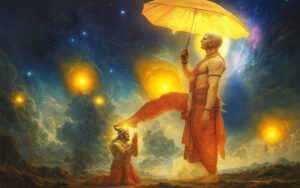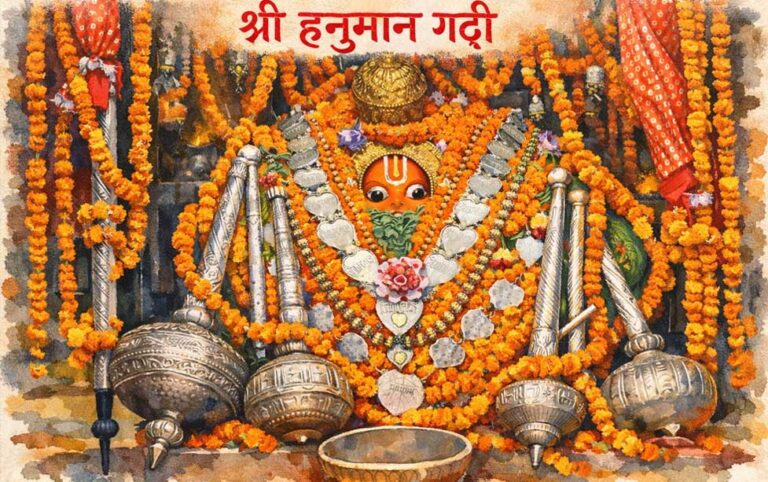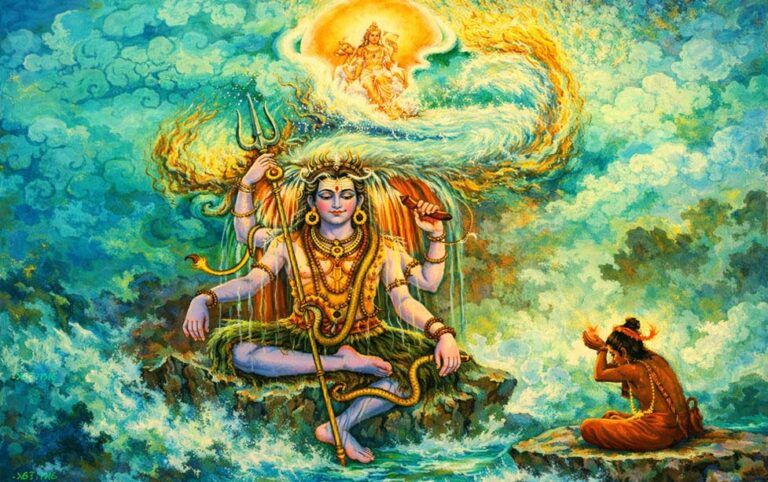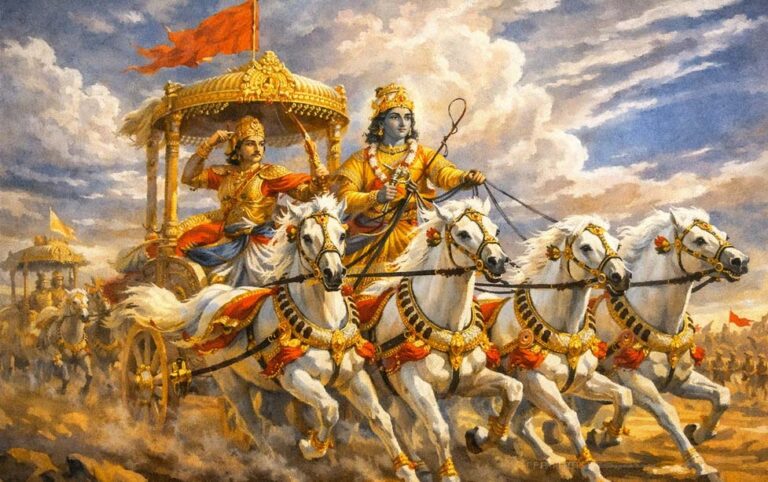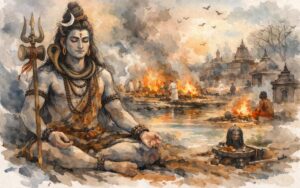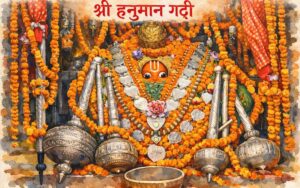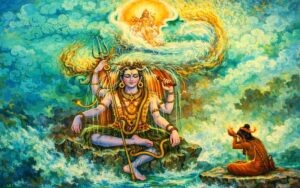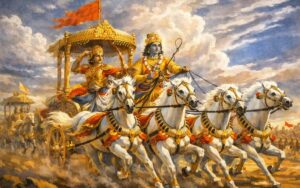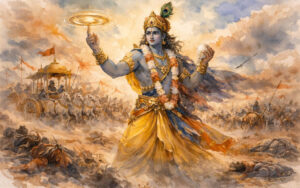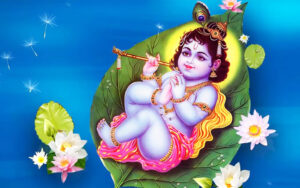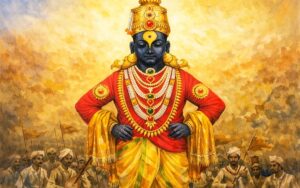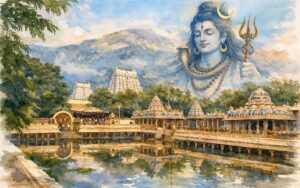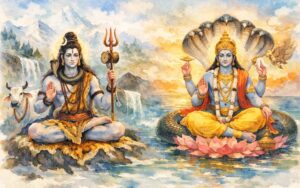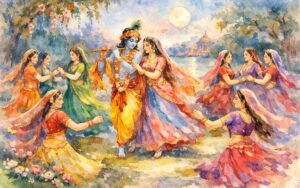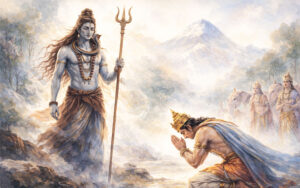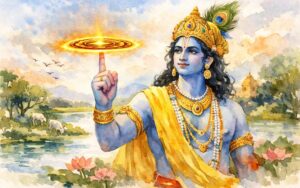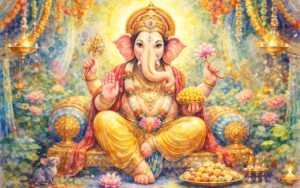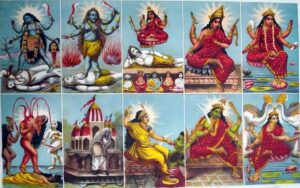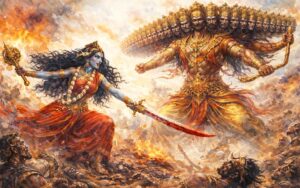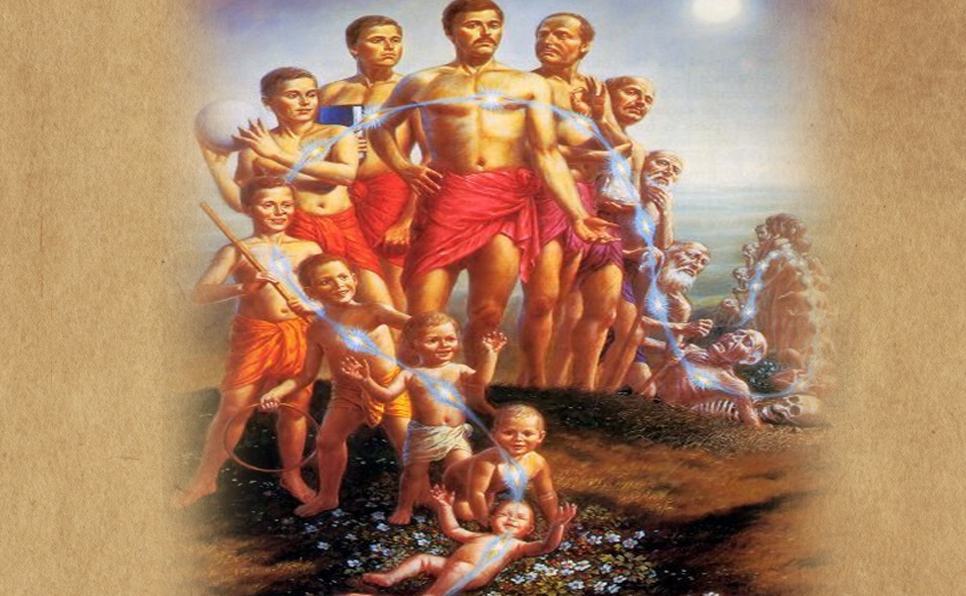

Beyond Death refers to the belief that after physical death, the soul undergoes a final judgment based on the accumulation of its actions and deeds during life, known as karma, which ultimately determines the soul's eternal fate.
Characters in the story:
Lord Yama: Lord Yama is the Hindu god of death and the ruler of the afterlife who judges the souls of the deceased and determines their fate in the next world.
![]()
Chitragupta: Chitragupta is a Hindu deity who is believed to be the record-keeper of all human actions on Earth. According to Hindu scriptures, he keeps track of every person’s good and bad deeds and determines their fate in the afterlife.

In Hinduism, the journey of the soul after death begins with the departure of the soul from the physical body. The soul is believed to leave the body and travel towards the afterlife, where it will be judged based on its karma or actions during life. The journey of the soul after death is often described as a journey through different realms or planes of existence, known as lokas.
The first loka that the soul reaches after death is known as the Pretaloka. Pretaloka is the realm of departed souls or ghosts. It is one of the fourteen Lokas or worlds in Hindu cosmology, located below the earth and above the underworld.
This realm is considered a temporary abode for the soul, where it stays until it is ready to be reborn into another life. The soul’s experience in Pretaloka is determined by their karma, or actions in their previous life.
Pretaloka is believed to be a place of suffering and torment for the wicked, and a place of rest and peace for the virtuous. Souls in Pretaloka are said to experience hunger and thirst, but they cannot eat or drink anything. The souls of those who have committed sins, especially against their parents, are said to suffer greatly in Pretaloka.
After some time, the soul moves on to the next loka, known as Yamaloka. Yamaloka is the abode of Yama, the god of death, and is considered the final destination of souls after death. It is believed to be a realm located below the earth’s surface and is guarded by Yamadutas, the messengers of Yama.
The souls of the deceased are believed to be escorted to Yamaloka by Chitragupta, who is said to keep a record of every individual’s actions on earth. Once in Yamaloka, the souls are judged by Yama, who determines the appropriate punishment or reward based on their actions in life.
Those who have lived a virtuous life are believed to be sent to Swarga, the heavenly abode, while those who have led a sinful life are sent to Naraka, the hellish abode.
The length of the stay in either abode depends on the severity of the individual’s actions on earth.
In some cases, the soul may be sent to a lower realm known as Pitru loka. Pitru Loka, also known as Pitri Lok, is the realm of the ancestors or the departed souls. It is believed that after death, the soul of a person goes to this realm to be judged based on their deeds in life. Pitru Loka is said to be situated in the southern direction, below the earth and above the realm of demons.
According to Hindu scriptures, there are two categories of Pitris – the Deified Pitris and the Ancestral Pitris. The Deified Pitris are the ones who have attained higher levels of consciousness and are worshipped as gods in Hinduism, such as Brahma, Vishnu, Shiva, and their respective consorts. The Ancestral Pitris are the deceased ancestors of the living beings, who are believed to have the power to bless or curse their living descendants based on their actions.
Pitru Paksha, a 16-day period in the Hindu lunar calendar, is considered to be a time when the souls of the ancestors visit the living world. It is believed that during this time, performing rituals and offerings to the ancestors can help them attain peace and salvation.
Once the soul has experienced the consequences of its actions, it is then reborn into a new body based on its karma. This cycle of birth, death, and rebirth is known as samsara, and it is believed to continue until the soul achieves moksha, which is liberation from the cycle of birth and death.
Overall, Hindu philosophy teaches that the journey of the soul after death is based on the principle of karma and that the actions of an individual during life will determine their fate in the afterlife.


